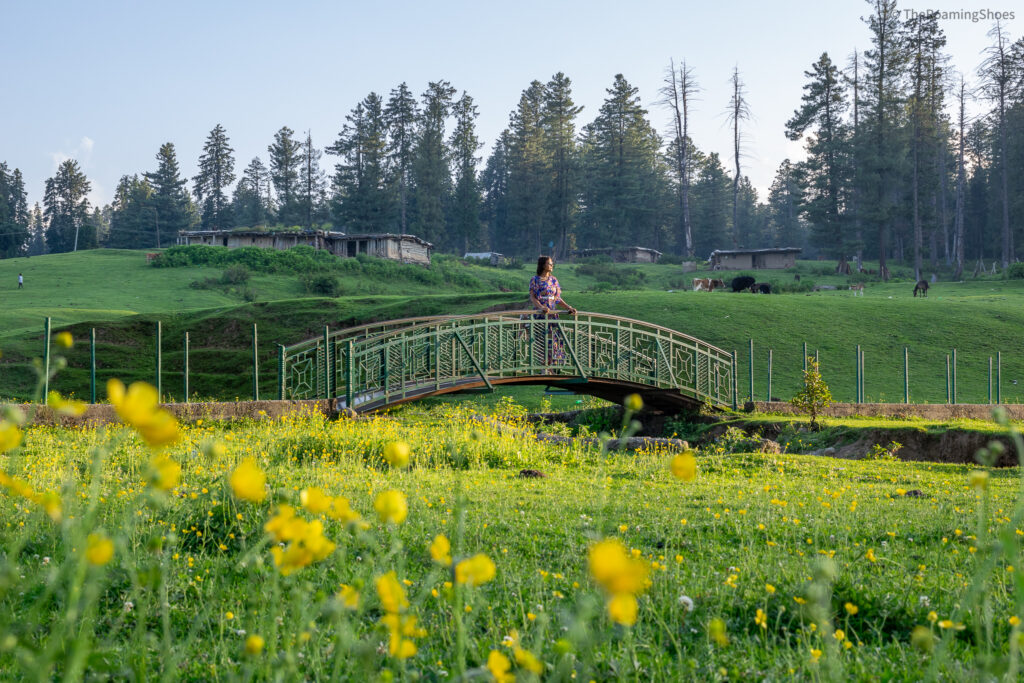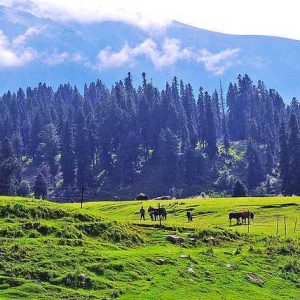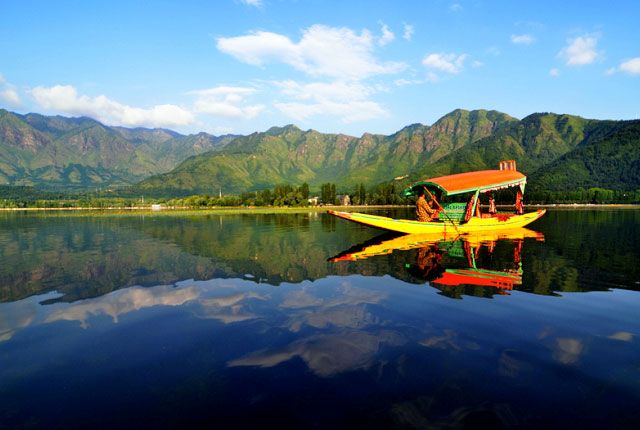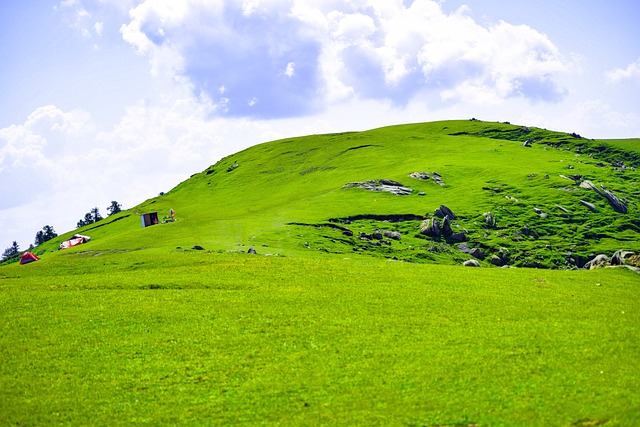
Is it safe to visit Yousmarg now
Table of Contents
ToggleOverview
Situated among the stunning Pir Panjal Range of the western Himalayas, Yousmarg—sometimes known as the “Meadow of Jesus”—is a emerald lawn of rolling meadows, pine woodlands, and snow-draped summits. As an increasing number of travelers opt for off-beaten-path vacations, Yousmarg safety concerns, is Yousmarg safe to visit, and Yousmarg Kashmir safety rise to importance. In this ultimate Yousmarg travel guide, we explore all aspects of traveling to Yousmarg safely, ranging from transportation and lodging to trekking safety measures and local culture. By the end of this article, you’ll have everything you need in terms of Yousmarg travel tips to plan a carefree, enjoyable trip.





Location & Overview: Why Yousmarg?
Situated about 47 kilometers to the east of Srinagar in Jammu and Kashmir, Yousmarg is situated at an elevation of about 2,400 meters (7,874 feet). Encircled by pine-covered hills and bordered by the Doodh Ganga River, it’s a nature enthusiast’s haven. Though remote, Yousmarg has progressively become popular for:
- Unspoiled Scenic Landscapes: Vast meadows covered with wildflowers that bloom every season.
- Adventure Sports: Horse riding, trout fishing, and snow trekking.
- Peace: Much fewer crowds than Gulmarg or Pahalgam.
In considering Yousmarg safety, remember that its beauty is not just about the spectacular views, but also because it has a history of being a tranquil haven within Kashmir’s lush valley.
Security & Peace of Mind: Rating Safety in Yousmarg
History & Present Situation
Kashmir has witnessed times of political unrest, yet the security situation has much improved in the last ten years. The Jammu & Kashmir government, in association with local governments, has taken steps to guarantee visitor security:
- Increased Patrols: Routine security patrols along major trails.
- Checkpoints: Compulsory security checkpoints on the way from Srinagar to Yousmarg.
- Local Guides: Trained local guides escort trekkers for extra safety.
Consequently, the majority of visitors find safe travel to Yousmarg both easy and comforting. The tour operators underline Yousmarg trek safety—leading you along well-used trails and lending equipment as and when required.
Crime & Health Safety
- Crime Rate: Yousmarg has an astoundingly low crime rate. Petty theft here is uncommon among this tight-knit hill village community.
- Health Facilities: A simple health center in Yousmarg serves minor illness. For complex medical requirements, Srinagar’s hospitals, a 2-hour distance away, are adequately provided.
- Medical Insurance: It’s wise to take coverage for travel insurance covering high-altitude trekking and evacuation of emergencies.
Adhering to common-sense precautions—keeping valuables safe, drinking bottled water, and adhering to guide advice—you can visit Yousmarg without hesitation in a secure manner.
Best Time to Visit: Balancing Beauty & Safety
Summer (April–June)
Weather: Daytime temperatures of 15–20°C; nights can be as low as 5°C.
Advantages: Clear skies, green meadows, and perfect trekking conditions.
Safety Notes: Afternoon rain showers are rare; pack a light raincoat.
Monsoon (July–August)
Weather: Moderate rain.
Advantages: Lush landscapes and fewer tourists.
Safety Notes: Trails can be slippery. Choose guided tours and proper trekking shoes for Yousmarg trekking safety.
Autumn (September–October)
Weather: Cool days of 12–16°C; colder nights around 2–5°C.
Advantages: Crisp air and the initial snows frosting the summits.
Safety Notes: Early snows may result in road obstructions. Verify road condition on a daily basis.
Winter (November–March)
Weather: The temperatures drop below 0°C; thick snow.
Advantages: Snow-covered meadows become a wonderland of snow trekking.
Safety Notes: Provide snow equipment, crampons, and an experienced guide to cross snowdrifts securely.
By planning your visit based on these Yousmarg weather safety factors, you add comfort and assurance.
How to Travel to Yousmarg in Safety
From Srinagar
Private Car or Taxi: The 2-hour NH 44 drive is scenic but twisting. Use experienced local drivers who know mountain roads.
Shared Cabs (Sumos): Cost-effective, though less convenient. They follow security stops and keep group travel.
Public Transport: Buses are infrequent; not recommended for those seeking Yousmarg travel tips on safety and convenience.
Safety Tip: Start your journey early to avoid driving after dusk when mountain roads can become more hazardous.
Necessary Permits & Checkpoints
Inner Line Permit (ILP): Indian nationals don’t require special permits beyond valid photo ID. Foreign nationals should register with the Foreigners’ Registration Office in Srinagar.
Security Checks: All cars are subject to luggage checks. Have ID documents ready.
Getting these formalities done in advance ensures your transit is hassle-free and smooth, adding to overall Yousmarg safety.
Accommodation & Local Hospitality
Types of Lodging
- Guesthouses & Homestays: Run by families, with local food and personalized service.
- Eco-camps & Tents: For an experience close to nature; available both in summer and winter.
- Basic Hotels: A few budget hotels with basic amenities.
Safety & Comfort Features
- Backup Power: Generators are available in most establishments to deal with power shortages.
- Warm Bedding: Electric blankets and thick quilts are usual during winter.
- Trusted Hosts: All reviews consistently mention the warm welcome and reliability of hosts—aspects to be considered while opting for accommodations for a secure visit.
Booking through trusted websites or local tour operators provides an added sense of security—ensuring your stay is in facilities that have adhered to safety and hygiene standards.
Top Safe Activities & Attractions
- Trek to Nilnag Lake
A moderate 8 km trek to Nilnag Lake—a glacial gem—provides stunning vistas. Guides provide Yousmarg trekking safety by spotting the trail, suggesting pace, and taking first-aid kits along.
- Horse Riding Through Meadows
Local ponymen offer strong horses and helmets. Novice or expert riders, these rides are guided and safe.
- Trout Fishing at Doodh Ganga
Trained fishing guides provide you with equipment and educate you on conservation-friendly methods. Life jackets and following catch-and-release standards make for a fun but responsible excursion.
- Snow Trekking & Sledging
Snowfall in winter turns Yousmarg into a winter wonderland. Experienced guides take you through secure paths, and brake-equipped sledges reduce risk during slope rides.
- Picnic at Mushku Valley
A short drive from Yousmarg, Mushku Valley is ideal for family picnics. Security personnel patrol the area, and park authorities maintain cleanliness, enhancing overall Yousmarg safety.
Essential Packing List for a Safe Trip
- Clothing: Layered attire—thermal innerwear, fleece jackets, waterproof outer shells.
- Footwear: Sturdy trekking boots with ankle support.
- Rain Gear: Waterproof jacket and pants.
- Sun Protection: High-SPF sunscreen, UV-blocking sunglasses, wide-brimmed hat.
- First-Aid Kit: Include altitude sickness medication, pain relievers, bandages, and antiseptic wipes.
- Water & Snacks: Reusable filtered water bottle and high-energy foods.
- Navigation & Communication: Offline maps app, charged power banks, portable satellite communicator if you’re going off main trails.
- Travel Insurance Documents: Printed and electronic copies of policy covering high-altitude adventure.
Packing with a focus on Yousmarg safety reduces surprises and lets you concentrate on the breathtaking views.
Health & Altitude Considerations
Yousmarg’s altitude of 2,400 meters entails a low risk of altitude sickness symptoms:
- Acute Mountain Sickness (AMS): Headache, nausea, dizziness.
- Preventive Measures: Gradual ascent, drink plenty of water, avoid strenuous activities on arrival day.
- Local Remedies: Drink ginger tea or suck on coca candies (found in Srinagar).
In case of disturbing symptoms, local stay options contain oxygen cylinders and can organize transportation to Srinagar medical facilities—emphasizing that travel to Yousmarg safely involves health preparedness.
Cultural Sensitivity & Local Guidelines
- Dress Modestly: Be considerate of local tradition by keeping shoulders and knees covered.
- Ask Permission: Ask permission before taking pictures of residents, particularly women.
- Environmental Respect: Practice “Leave No Trace” ethics—take back your trash and do not disturb wildlife.
- Local Festivities: Participating in a local gathering, like a traditional mehfil Kashmiri, promotes cordiality. By interacting with respect, you contribute to preservation of the serene environment characteristic of Yousmarg safety.
Travel Insurance
Recommended Coverage
- Medical Evacuation: Essential for emergencies in far-flung areas.
- Trip Cancellation: Guards against unforeseen changes in the itinerary.
- Adventure Sports Add-on: Insures against winter sports or trout fishing accidents.
Sample 3-Day Itinerary: Safe & Spectacular
Day 1:
Morning: Leave Srinagar early; security stops along the way.
Afternoon: Check into homestay. Acclimatization walk in the meadows.
Evening: Partake in Kashmiri cuisine alongside a bonfire, accompanied by your host.
Day 2:
Morning: Guided hike to Nilnag Lake (8 km return), with packed lunch.
Afternoon: Horseback ride over Yousmarg meadows.
Evening: Back to homestay; performance of traditional Kashmiri folk music.
Day 3:
Morning: Trout fishing excursion to Doodh Ganga River.
Late Morning: Picnic at Mushku Valley.
Afternoon: Return back to Srinagar before the sun sets.
This expertly designed plan is all about blending adventure, relaxation, and Yousmarg travel advice that gives paramount importance to safety at all costs.
Frequently Asked Questions
Q1: Is winter visit to Yousmarg safe?
A: Absolutely—with good winter clothing, organized snow walks, and prudent traveling plans, winter visits are not only enchanting but safe.
Q2: Are security risks on the Srinagar–Yousmarg highway?
A: Roads are regularly patrolled, and checkpoints ensure a safe journey. Hiring trained local drivers further reduces risks.
Q3: Do I need vaccination certificates?
A: No vaccinations are necessary other than regular immunizations. Staying up to date with tetanus and flu shots is nonetheless recommended.
Conclusion
From its green pastures to its peaceful valleys, Yousmarg invites tourists in search of a peaceful Himalayan retreat. By incorporating these Yousmarg safety guidelines, Yousmarg travel advice, and responsible-traveler ethics, you can visit Yousmarg safely at any season. Whether you’re dropping a line into Doodh Ganga for trout or climbing snowy peaks, prepared travelers will discover that Yousmarg is not just safe but richly rewarding. Pack smart, honor the local traditions, and set out on an adventure that will fill your mind with memories as rich as the flowers that cover these peaceful meadows.
How to book Kashmir tour?
Contact a travel agency that specializes in Kashmir tours. You can reach out to the following for assistance:
- Phone:
- +91 7889 655596
- +91 7006 891267
- Email:
Inquire about tour packages, itineraries, and pricing, and confirm your booking for a memorable winter experience!
People Also Ask
Is it safe to visit Yousmarg any time of year?
Yes, Yousmarg is generally safe throughout the year. Summer and autumn are ideal for clear skies and hiking, while winter offers snow trekking—provided you hire a certified guide, carry proper gear, and follow local safety protocols.
Do I need special permits to travel to Yousmarg?
Indian nationals require only a valid government-issued ID. Foreign visitors must register with the Foreigners’ Registration Office in Srinagar before heading to Yousmarg for a hassle-free journey.
What is the best way to reach Yousmarg from Srinagar safely?
The safest options are a private taxi with an experienced driver or a shared Sumo cab. Both adhere to security checkpoints along NH 44 and ensure you arrive before dusk to avoid winding-road hazards.
Are there medical facilities available in Yousmarg?
A primary health center in Yousmarg handles minor ailments. In case of emergencies, Srinagar’s hospitals—under two hours away—offer comprehensive care, including high-altitude evacuation if necessary.
How can I avoid altitude sickness in Yousmarg?
To prevent AMS, ascend gradually, stay hydrated, avoid alcohol, and rest on arrival day. Pack altitude sickness tablets and carry electrolyte solutions to manage mild symptoms effectively.
Is drinking water safe in Yousmarg?
Tap water isn’t recommended. Always use bottled water or fill a filtered water bottle. Staying hydrated is crucial for both health and altitude adjustment in the cool mountain climate.
What are the top safe activities in Yousmarg?
Popular safe activities include guided treks to Nilnag Lake, horse rides across the meadows with helmets provided, trout fishing with life jackets, and snow trekking or sledging with professional guides.
Can I book homestays in advance for better safety?
Yes, advance booking through reputable platforms or local travel agencies guarantees vetted hosts, secure payment, and confirms amenities like backup power, warm bedding, and trusted local support.
Is rain or snow a safety concern in Yousmarg?
Monsoon and winter can make trails slippery. Carry waterproof gear, wear trekking boots with good grip, and only venture out with a guide familiar with route conditions to ensure safety.
Are wildlife encounters a risk in Yousmarg?
Wildlife sightings are rare in populated areas. Still, respect “Leave No Trace” rules, keep a safe distance, and follow guide instructions to minimize any risk when exploring forested zones.
What should I pack for a safe trip to Yousmarg?
Pack layered clothing (thermals, fleece, waterproof shell), sturdy trekking boots, sunscreen, sunglasses, first-aid kit (including AMS medication), portable charger, and printed insurance and emergency contacts.
Is mobile network coverage reliable in Yousmarg?
Coverage is intermittent. BSNL and Jio sometimes work near main meadows. For remote treks, consider an offline GPS app or renting a satellite communicator for added safety.
Are solo trips to Yousmarg safe?
Solo travel is possible but less safe than group tours. If traveling alone, hire a certified local guide, inform your guesthouse of your itinerary, and share real-time location updates with someone back home.
Can families with children visit Yousmarg safely?
Absolutely—Yousmarg is family-friendly. Opt for shorter treks, stick to main trails, supervise kids near water, and equip them with warm clothing and sturdy footwear to ensure a secure family adventure.
Is it safe to drive myself to Yousmarg?
Self-driving is feasible for experienced mountain drivers. Ensure your vehicle is well-maintained, carry snow chains in winter, check weather and road status, and avoid driving after nightfall.
How do I stay connected in case of emergencies?
Carry a fully charged power bank, keep emergency contacts and local police numbers handy, and save your tour operator’s helpline. Use offline maps and consider a satellite phone for remote areas.
Are there seasoned local guides available in Yousmarg?
Yes, certified local guides offer trekking safety, wildlife knowledge, and cultural insights. Hiring a guide ensures you follow safe routes, learn about the region, and receive immediate assistance if needed.
Can solo female travelers feel safe in Yousmarg?
Many solo female travelers visit safely. Dress modestly, stay in well-reviewed homestays, avoid isolated areas after dark, and hire a guide or join small group tours for added security.
What wildlife precautions should trekkers take?
Stick to marked trails, make noise to alert animals, avoid feeding wildlife, and carry bear spray only if recommended by your guide. Respect habitats to prevent unwanted encounters.
Is it safe to go snow trekking without prior experience?
Beginners can enjoy snow trekking when accompanied by professional guides who provide crampons, boots, and safety briefings—ensuring a controlled environment for first-time adventurers.
What travel insurance is best for Yousmarg trips?
Choose a plan covering medical evacuation, trip cancellation, and adventure sports. Verify it includes high-altitude trekking, snow activities, and emergency transport to Srinagar hospitals.
How can I monitor weather and road conditions?
Check local weather forecasts from Srinagar radio stations or apps before departure. Contact your guesthouse host daily for road status updates, especially during monsoon or early winter.
Is cash or card payment safer in Yousmarg?
Carry sufficient cash (INR) since ATMs are scarce. Also bring a debit/credit card for homestays or eco-camps that accept digital payments—balancing convenience and security.
What cultural etiquette improves my safety in Yousmarg?
Respect local customs: dress modestly, ask permission before photos, remove shoes indoors, and greet residents with “As-salamu alaykum.” Politeness fosters goodwill and a secure experience.
How do I handle emergencies in remote Yousmarg areas?
Stay calm and notify your guide. Use your satellite communicator or mobile if available. Administer first aid, then arrange evacuation through local contacts or your travel insurance provider for safe transport.




